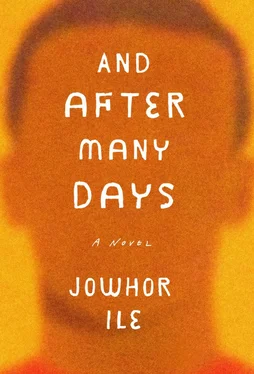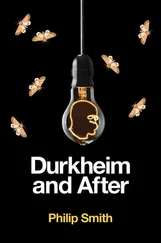How is your math?
Remember what we agreed you should do when someone tries to annoy you. The backward count always works. Take it slowly from 100, and before you know it, you will think of something better than to lash out. Don’t be afraid to report anyone who is bothering you. Did you write to your sister?
I hope to be going to Abuja in a few weeks. I have been selected, among other people in the state, as part of a committee to discuss revenue allocation with the government. If you ask your brother, he might be able to explain to you.
Write to us.
Your affectionate father,
P.S.: Mr. Onabanjo has said he doesn’t see you enough. He is your guardian — why are you avoiding him? He sends for you and you don’t go. Please, report to his office once every week, Fridays preferably. Let him know how you are doing. I will call him.
—
The newspaper selection at the school library did not run any story about Bendic’s trip to Abuja and what he said in those meetings. Neither Paul nor Ajie stumbled across their father’s name while flipping through the papers that were brought daily to the large reference table in the library, but what did it matter, anyway?
The newspaper front pages in the months that followed carried stories about revenue allocation, think tanks set up for community development, and governors cutting ribbons for commission projects with much fanfare.
In Ogibah, Nwokwe’s son began preparing to run for local government chairman. He had been a secretary in OYF, and many people suggested he run for a councillorship position in the local government first, but he refused. He had the backing of his father for the top job.
Some people would later say the trouble all began when Nwokwe made his son run for office; they said after then that things were never the same in Ogibah. Some said it was all the fault of Company; that it began in those early years when they first arrived in their coveralls and jungle boots. Others said the trouble in Ogibah had nothing to do with any of those but started from when human beings decided to live together in a community, knowing all the while they were prone to savage betrayals, filled with the desire to conquer each other, yet making no sufficient safeguards against these. Application Master declared it was greed, Nwokwe’s and his son’s greed, and that was all.
Bibi loved opening letters. Like all girls, she loved secrets — having, hiding, and revealing them only in exchange for more dangerous ones. She grew tall in the year after she entered secondary school, and during that holiday she befriended, for a brief time, a round-faced girl who had turned up on their street. A girl from number 17. She was one of Chief Wokoma’s children but had lived since birth with her mother, who from the start refused to share a roof with Chief Wokoma and his other three wives.
The girl sauntered through the gate one Friday afternoon, and it was Bendic she met first, sitting on the veranda and taking some fresh air while everyone else was in the parlor. Bibi had received a letter from her best friend that afternoon and, after reading it in the privacy of her room, colonized a big portion of the dining table, where she sat to compose her reply. Paul needed much space on the dining table, too, because his new Sony Walkman had dealt him some treachery, cutting a few of his favorite cassette tapes. Paul had been bent over all afternoon, undoing the tiny screws on the cassette, then unwinding the spool of glistering brown tape to locate the severed parts. He sweated in the warm air of the parlor and his frustration mounted. Bibi refused, even after Paul’s suggestions, to use the lower center table in the seating area to do her letter, so a silent war raged on the dining table as they bore down on their respective tasks with unflinching focus.
Ajie sat on the sofa opposite Ma and hoped power would be restored. Even though the TV stations wouldn’t have come on yet, at least there would be that muted vibe, the hum of electricity waiting in sockets, making the fridge breathe, and at least the ceiling fan would be spinning and blowing air across the room. Ma was asleep, her head thrown back as she let out air softly through her parted lips.
“Good afternoon, sir.” The girl’s voice came from outside. Bibi continued being busy with her letter writing; Paul was now using a Bic pen to roll in his metallic chrome cassette.
“Oh, I see,” Bendic was saying to the girl. “You are Chief Wokoma’s daughter?”
“Yes, sir.” She was now on the veranda with Bendic. “I’m his daughter. My brothers said there is someone in this house I can play with.”
“Yes, yes, there are,” Bendic said. “My children are inside. Bibi,” he called out, “Paul, Ajie.”
“What’s your name?” Bendic asked.
“Wendy,” she replied.
“Wendy.”
“Nwenenda,” the girl said by way of explanation, “but everyone calls me Wendy.”
Ajie stood by the window and watched the girl in her short dungarees and white T-shirt. And then she walked into the parlor. “Good afternoon, Ma,” she said loudly, startling Ma out of her afternoon dream.
“Mm-hmm,” Ma mumbled, smacking her lips and swallowing. “Afternoon, my daughter, how are you?” She squinted and smiled as if she had any idea who the girl was.
“I am fine, thank you, Ma,” Wendy said, and Ma turned back toward the dining table to see where Paul and Bibi were; in her groggy state, she was assuming the girl was one of Bibi’s friends whom she should know.
“How are your parents?” Ma found herself asking. Bibi left the dining table and came over to Ma and Wendy. Paul had suspended his tape rolling and was watching.
“What were you doing?” Wendy asked, smiling at Bibi as if to say, Let’s just accept that we are good friends already. Her eyes were scanning the framed photographs on the wall as she and Bibi walked back to the dining area. “My name is Wendy.”
Ajie was watching Paul watch Bibi and Wendy. Apart from her sky-blue short dungarees, Wendy had everything else to match: white T-shirt, white sneakers, white socks, and white wristwatch strap.
“Bibi,” Bibi replied. “My name is Bibi. I was just replying to a letter from my friend.” She pulled out one of the dining chairs for Wendy, but the two of them just stood behind the chairs for a moment, and right then Ajie would have loved to call Bibi by her full name; he would have loved to cough out, “Edobibi!” in his thickest Ogba accent, anything that might mar the sweet first impression Bibi seemed so bent on making. He would go on to explain to Wendy, who would be manifestly appalled by such an uncool name, “She was born in the year our house in the village was completed. Her name simply means a place to live, ” and then it would be left to Ma to raise her voice and say, “No. Home . It means home .” But anyway, Bibi beat him to it. “My brother Paul”—she gestured toward Paul, and then turning the other way—“Ajie, my kid brother.”
Kid stung him. The way Bibi delivered it, knowing exactly what she was doing and counting on him to endure the slight until at least the visitor was gone. Ajie snorted, hissed, and swayed in resentment, but no one noticed. Wendy nodded coolly at Ajie, and although Paul was right before her, she waved her fingers hi-yaa and immediately turned to Bibi as if there were something they had to discuss.
“Bibi, won’t you offer your friend something?” Ma asked. “I think we have some soft drinks in the fridge.”
Wendy shook her head at Bibi and winced in a big-girl sort of way, Don’t bother.
“So you are always writing letters to your friends. Who is this one to?” Wendy asked.
Читать дальше












